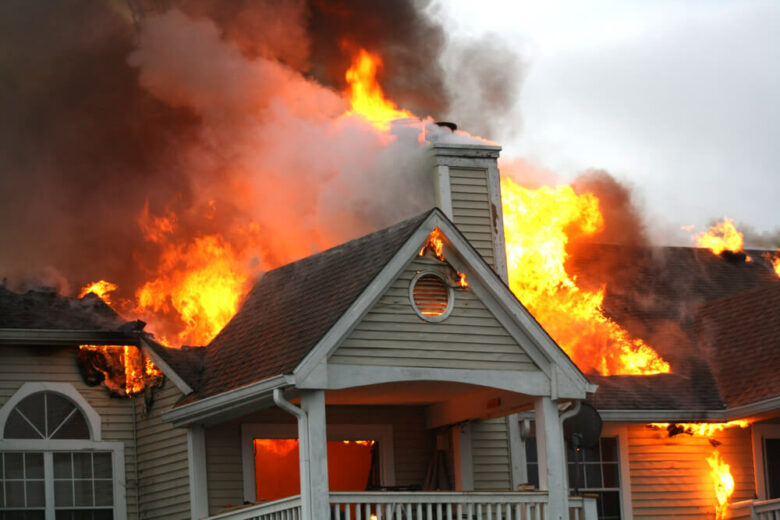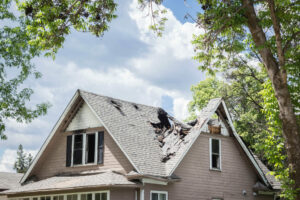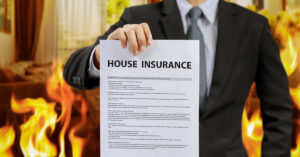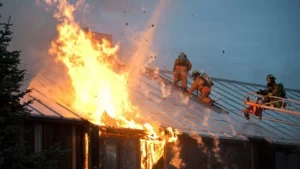Fire insurance is a critical safeguard for protecting your property against the financial devastation a fire can cause. Whether you own a home or a commercial property, choosing the right fire insurance policy can provide peace of mind while ensuring you’re properly covered during an emergency. This article will guide you through the essential factors to consider when selecting fire insurance to secure the future of your property.
Assessing Your Property’s Value and Risk Factors
The first step in selecting fire insurance for your property is evaluating its value and understanding its unique risk factors. Estimating the replacement cost of the property and its contents helps ensure you purchase adequate coverage. Factors such as location, construction materials, proximity to fire stations, and the presence of fire safety systems—like sprinklers or alarms—can impact the level of risk. Understanding these details helps tailor your insurance policy to meet the specific needs of your property.
Understanding Different Types of Fire Insurance Coverage
Fire insurance policies offer various types of coverage to suit different situations. From basic policies that only cover damage caused by fire to comprehensive policies that include additional perils such as smoke, explosions, or natural disasters, it’s crucial to assess which coverage best fits your circumstances. Some policies might include coverage for the property’s contents, while others may focus on structural damage. Knowing your specific requirements allows you to choose the right policy type.
Evaluating Policy Limits, Deductibles, and Premiums
When assessing fire insurance, carefully review the policy’s limits, deductibles, and premiums. Policy limits determine the maximum payout you can receive after a covered event, so ensure those limits adequately address your property’s potential repair or replacement costs. Deductibles are the amount you’ll pay out-of-pocket before your insurance coverage kicks in, and higher deductibles can sometimes result in lower premiums. Balancing these variables ensures that your policy offers both affordability and sufficient coverage.
Reviewing Policy Exclusions and Special Endorsements
Every fire insurance policy comes with specific exclusions—situations or damages that the policy doesn’t cover. For instance, standard policies might exclude damage caused by arson or acts of war. It’s imperative to thoroughly review these exclusions to avoid surprises when filing a claim. Additionally, policies may offer special endorsements or add-ons to cover excluded perils, such as coverage for high-value items or flooding. Discussing these options with your insurance provider can help you customize your policy to meet your needs.
Comparing Quotes from Multiple Insurance Providers
The fire insurance market offers a broad range of policy options, and not all insurance providers are alike. To get the best coverage at the most competitive rate, request quotes from several insurers. Compare the coverage options, exclusions, and premiums side by side to find the policy that offers the best value. Be sure to research your chosen insurance company’s reputation and financial strength, as this will affect their ability to pay out claims when needed.
Making an Informed Decision and Purchasing Coverage
Once you’ve gathered all the necessary information and compared available options, it’s time to make your choice. Consider both the quality of the coverage and the insurance company’s reliability. Good fire insurance isn’t just about low premiums—it’s about receiving adequate protection and responsive customer service. Take your time to decide and ensure you fully understand the terms and conditions of your selected policy before finalizing your purchase.
Documenting Your Property and Maintaining Coverage
After purchasing fire insurance, it’s important to document your property thoroughly. Take clear photos or videos of your property, including its contents, and keep an inventory of high-value items. These records will prove helpful in filing a claim if a fire occurs. Regularly review and update your policy to account for any new property improvements or purchases. This ensures that your coverage remains relevant and sufficient, avoiding coverage gaps over time.
Filing a Fire Insurance Claim and Navigating the Process
If a fire occurs, filing an insurance claim can help you recover your losses. Begin the claims process as soon as possible by notifying your insurance provider. Provide them with all necessary documentation, including proof of damage, receipts, and your property inventory. Understanding the claims process beforehand can streamline the experience and make recovery smoother. Work closely with your insurance company and stay informed throughout to receive timely compensation.
Protecting Your Property Starts with the Right Policy
Choosing the right fire insurance policy for your property is a crucial step in securing your financial future. By understanding your property’s needs, comparing coverage options, and carefully reviewing each policy, you can guarantee peace of mind while ensuring your property is adequately protected against fire-related incidents. Fire insurance is more than just a financial safety net—it’s an investment in your resilience. Take the time to find the best policy today and protect what matters most.
Frequently Asked Questions
Q1. What does fire insurance typically cover?
A1. Fire insurance generally covers damages to your property caused by fire, including structural damage, destruction of contents, and sometimes additional living expenses if you need temporary housing. Coverage specifics, such as smoke or water damage caused by firefighting efforts, depend on the policy.
Q2. Is fire insurance separate from standard home insurance?
A2. Fire insurance is often included in standard home or property insurance policies. However, if your policy excludes fire-related damages, you may need to purchase separate fire insurance. Always check the fine print of your existing policy.
Q3. How can I reduce the cost of fire insurance?
A3. You can lower fire insurance premiums by installing fire safety systems like smoke detectors, fire alarms, and sprinkler systems in your property. Choosing policies with higher deductibles and bundling policies with the same provider may also reduce costs.
Q4. What documents should I keep for my fire insurance?
A4. Maintain a detailed inventory of your property and its contents, including receipts for high-value items. Take photographs or videos of your property, and store these records in a secure location (such as cloud storage) to simplify the claims process.
Q5. Does fire insurance cover arson?
A5. Most fire insurance policies do not cover arson if it’s proven to be intentional and caused by the policyholder. However, fires caused by vandalism or third-party actions are generally covered, unless explicitly excluded.




